Nigeria’s Fecko talks about his The Mic: Africa victory
Nigerian rapper Fecko was crowned the winner of pan-African hip hop competition The Mic: Africa in early January.
 Fecko says he’ll be releasing a music video series-themed EP and album this year.
Fecko says he’ll be releasing a music video series-themed EP and album this year.
The Mic: Africa is associated with Take Back the Mic: The World Cup of Hip Hop, a global competition seeking to discover and promote rappers around the world. The contest first launched in Kingston, Jamaica, and has so far been held in Medellin, Colombia, and Rio de Janeiro, Brazil. The first season of the African edition ran between July and December 2020 on the Take Back the Mic digital platform. As the winner, Fecko is guaranteed a grand prize of $25 000 and a trip to Rwanda for two.
The songwriter was a frontrunner throughout the competition, but for him, the win seems more like a fantasy than reality. Fecko, 31, has been making music for more a decade and now anticipates that this win will take his music career to the next level. For aspiring singers, Fecko recommends that they work hard and do not rely on natural ability alone.
Fecko recently spoke to Music In Africa about his victory and what lies ahead.
MUSIC IN AFRICA: What went through your mind when you were announced as the winner?
FECKO: I screamed with excitement! It was an incredible feeling. I had been anxious all day long because I didn't know whether I’d get enough votes from the judges, even though I was leading the charts when the voting ended. I was super excited to realise that I also got the most votes from jury members Doug E Fresh and David Kau. I must confess that I was confident I’d stand out but was unsure how things would play out.
What are your plans now that you’ve won?
I am confident that my career will finally kick-off. I have been underground in the music business for more than a decade. Now I’m sure that my artistry will be celebrated globally. And with the prize money, I intend to use it to better my life and people’s lives around me.
Did you start out as a hip hop artist?
I always enjoyed listening to music from an early age. My first gifts as a child was a mic, cassette player and harmonica. And during my secondary school days, I was fond of performing during social night events. It runs in the family. My late grandma loved singing and dancing. I started out rapping, but now I don’t want to be placed in a box any more. I express myself based on how inspiration comes to me. So sometimes you might find me making Afrobeats.
Did the competition open you up to new styles that you think will inspire your future works?
Well, one thing I discovered was that the semifinalists had originality. I love Yung Pabi’s delivery and theatrical approach to his music. Black Psalmist is also a legend and a very remarkable lyricist. These are some of the artists that stood out for me and kept me on my toes to become a better performer.
What advice would you give to someone considering auditioning for The Mic: Africa?
They should be original and confident. Ensure that they have an online presence that can help rally for votes. But most importantly, they must be tech-savvy since The Mic: Africa is digitally oriented.
If you could collaborate with an established artist on an upcoming track, who would it be and why?
I would first go for Burna Boy and Koffee because I believe we’re all on the same musical frequency irrespective of our genres. I also love their versatility and authenticity. I have watched their careers grow astronomically over the years, and they both inspire me and make me believe that I can reach such a level of stardom on a global scale even by staying true to my heritage and craft.
Where do you see yourself in the next five years?
Firstly, I will be releasing a music video series-themed EP and an album this year. As for the next five years, I hope to be a Grammy nominee or winner. I also believe that by then I'll be in an influential position to impact Africa positively. It could be through my artistry or politics.
Why do you think you can make it in politics?
All through college I have held one leadership post or another. I have always been eager to serve. And I have rebelled against impunity and dictatorship through my music and street protest. I want to see a paradigm shift in how democracy works in Africa.
Few countries in Africa have come close to achieving good governance. What is the reason for this?
In Africa, a lot of dictators prefer to die in power. Take for example what happened in Uganda. Museveni has been ruling since before I was born and he just won a sixth term, while the military still surrounds his opponent Bobi Wine’s home. Democracy can’t thrive in such hostility. That’s 'democrazy' – a demonstration of craziness, in the words of Fela Kuti. Young and brilliant Africans need to secure a powerful slot in African politics to change their countries’ future. I admire Bobi Wine's courage. We need more courageous leaders like him.
Do you think democracy will ever work in Africa?
Yes, I believe it should work if the electoral commissions and tyrant leaders learn to accept the people’s will. I think most countries have rigorous systems to ensure that the polls are credible and accountable. Additionally, African youths need to keep speaking up. A thousand of us marching as one are unstoppable. For instance, the #EndSars protest in Nigeria is just the beginning of what’s to come. Revolutions take time.











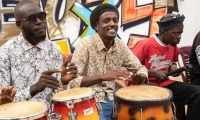
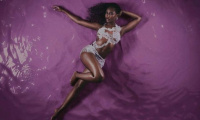
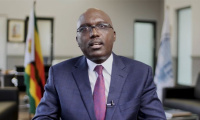






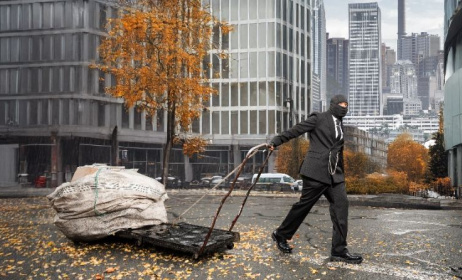
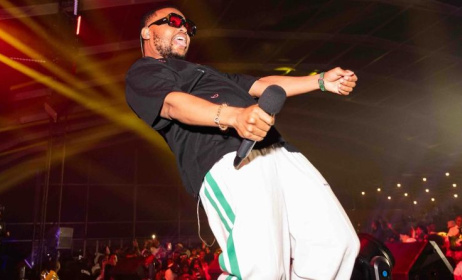

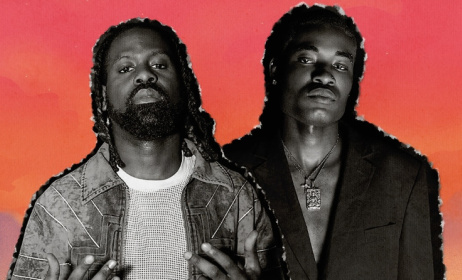





Comments